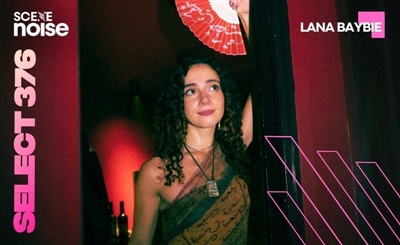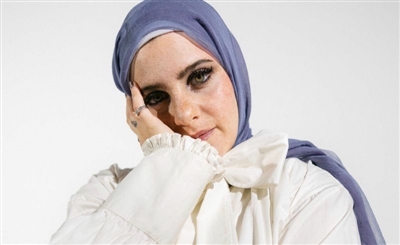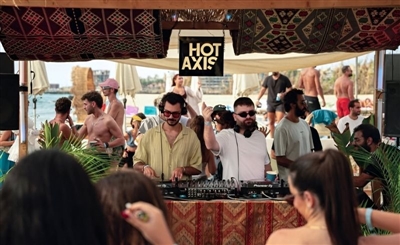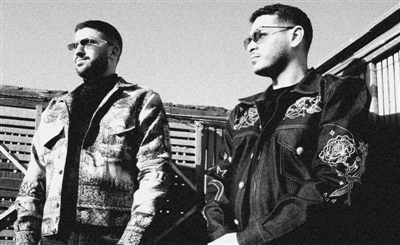Copied
Swiss-Lebanese Duo PRAED Whip Up Raucous, Acid Jazz Infused Electro-Chaabi on "Doomsday Survival Kit"
In the world of Arabic contemporary music, they have carved out their own niche sound by blending free jazz and electronic music with Arabic street music.
Dec 13, 2018
.jpg)
PRAED is a Swiss-Lebanese duo consisting of Swiss clarinetist, bassist and composer Paed Conca and Lebanese keyboardist, bassist and multi-media artist Raed Yassin - as you can probably guess, "PRAED" is an amalgamation of their names. Both come from their own diverse careers in avant-garde composition and performance, and the duo has been making music together since 2006. Though in the past, their music fell more into the realm of soundscapes, they became inspired by Egyptian street and wedding music, known as electro-chaabi or mahragnat. This style acts as their template, which they then submit to a process of composition, decomposition, and reconstruction, threading in free-jazz, psychedelia and contemporary composition for a result that is a culmination of all their interests.
<iframe style="border: 0; width: 100%; height: 120px;" src="https://bandcamp.com/EmbeddedPlayer/album=4212563378/size=large/bgcol=ffffff/linkcol=0687f5/tracklist=false/artwork=small/track=705696487/transparent=true/" seamless><a href="http://akuphone.bandcamp.com/album/doomsday-survival-kit">Doomsday Survival Kit by Praed</a></iframe>
While Paed and Raed both have roots in the experimental music scene, they both entertain a strong interest in popular music, street music, and classically inclined music. "Our goal with PRAED is to make chaabi dance music, but combine it with techniques from the avant-garde, minimal and psychedelic music scenes. We put a lot of passion and thought into what we do." It certainly shows.
They see this mixture of genres as a breakdown of the class system - the marriage of working class Egyptian "popular" music with high-brow, elitist contemporary composition. In other words, it is a socio-political smoothie.
Last week PRAED released their fourth album, Doomsday Survival Kit, a four-song reflection on the rather glaringly bleak state of the contemporary world. "Wherever you look, it feels like we are heading into the apocalypse very soon, whether economically, politically, or environmentally speaking," they say. For anyone even half awake, that isn't a hard sentiment to relate to. "There is a limitation of movement and freedom, a difference in possibilities depending on where you're from." For those familiar with the "Doomsday prepper" phenomenon as fetishized on American reality television, the title of the album, "inspired by conspiracy internet TV hosts who were selling doomsday survival kits as their merchandise," won't go misunderstood.
<iframe style="border: 0; width: 100%; height: 120px;" src="https://bandcamp.com/EmbeddedPlayer/album=4212563378/size=large/bgcol=ffffff/linkcol=0687f5/tracklist=false/artwork=small/track=261079998/transparent=true/" seamless><a href="http://akuphone.bandcamp.com/album/doomsday-survival-kit">Doomsday Survival Kit by Praed</a></iframe>
The album communicates a refined musical approach in relation to their older albums, as they allocated special focus to the use of composition and sampling. Naturally, their process consists of many stages, however with a group that pulls off free-jazz-chaabi live, it warrants exceptional curiosity as to how they go about building the music.
First, they make a conceptual blueprint, where they "sketch ideas and themes around the album and imagine how to translate these ideas musically." After this, they being to construct the building blocks that comprise the majority of their music: samples.
In the past, they have used pre-existing sounds as sample material - this time, they wanted to source the samples themselves. Making chaabi, there is only one place to sample authentic sources, and that is exactly where they ended up. The duo spent some time in Cairo, recording chaabi keyboardists and percussionists. "We choose really complex rhythms to jump-start our inspiration for composing the sequences, melodies, horn sections and other parts for different instruments." As far as the band make-up goes, Paed plays clarinet, bass clarinet, electric bass and electronics, while Raed is responsible for keyboards, laptop and vocals.
<iframe style="border: 0; width: 100%; height: 120px;" src="https://bandcamp.com/EmbeddedPlayer/album=4212563378/size=large/bgcol=ffffff/linkcol=0687f5/tracklist=false/artwork=small/track=2411219799/transparent=true/" seamless><a href="http://akuphone.bandcamp.com/album/doomsday-survival-kit">Doomsday Survival Kit by Praed</a></iframe>
The music is frenetic and well-crafted, with signature signs of electro chaabi (minus auto-tuned vocals). It is trance inducing, rabidly in your face, and occasionally uncomfortable.
Though the first track on the album is over 17 minutes long, "Doomsday Survival Kit" wastes no time, instatntly going 0-100. Paed's clarinet and bass clarinets trace hallucinatory melodies over delirious electronics. The clarinet is the main signifier of the free jazz side of the music, descending into nebulous dissonance, before being overtaken by severe gothic organs.
The last track, "The Spy Who Spoke Too Much," is the only song with vocals. Raed shouts and utters guttural sounds over a morass of synths, organs, and drums, reminding you that there is humanity behind this apocalyptic soundscape of delirious chaos.
<iframe style="border: 0; width: 100%; height: 120px;" src="https://bandcamp.com/EmbeddedPlayer/album=4212563378/size=large/bgcol=ffffff/linkcol=0687f5/tracklist=false/artwork=small/track=496255325/transparent=true/" seamless><a href="http://akuphone.bandcamp.com/album/doomsday-survival-kit">Doomsday Survival Kit by Praed</a></iframe>
Doomsday Survival Kit leaves your brain buzzing with a soft fuzz, all the neurons having fired. The duo really did tear down chaabi only to reconstruct it, foregoing the simple melodies and auto tune, the factors that make it an accessible form. Though at first it gives the feeling of straight-forward electro-chaabi, you soon realize that this is just the basis, the playground upon which the avant-garde compositions run amuck, and that it is as much free jazz as it is chaabi. If Archie Shepp had grown up in Imbaba, this is the music he would be making.
.jpg)
Follow PRAED on Facebook.
- Previous Article Getting Abyusif
- Next Article 23 Must-Watch Middle Eastern Music Documentaries
Trending This Month
-
Jan 29, 2026






















